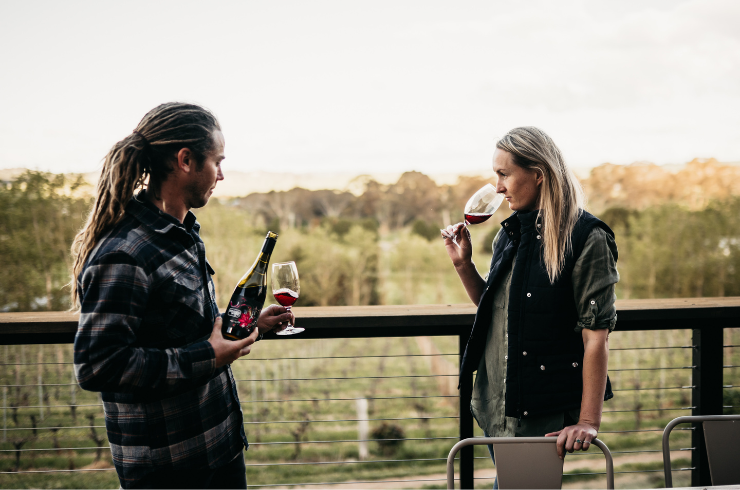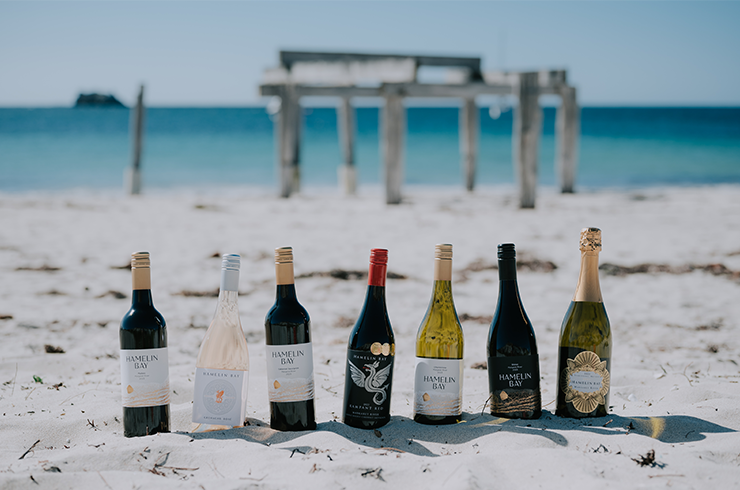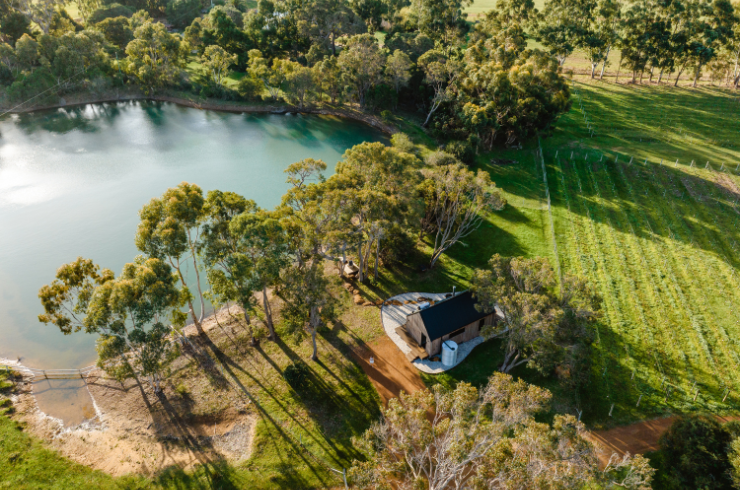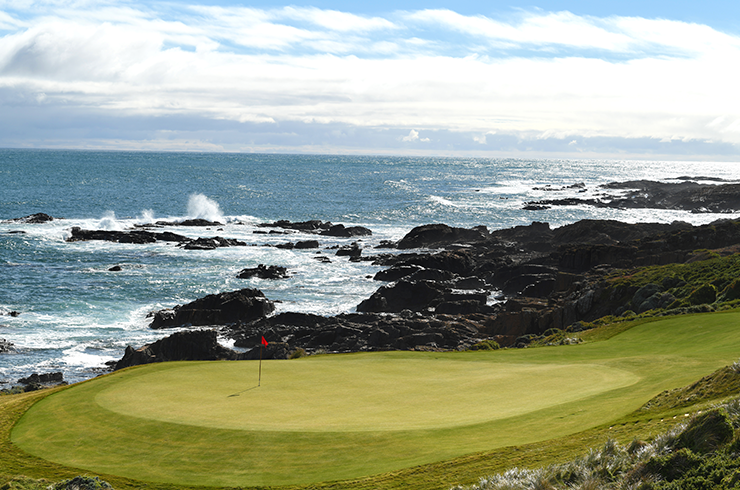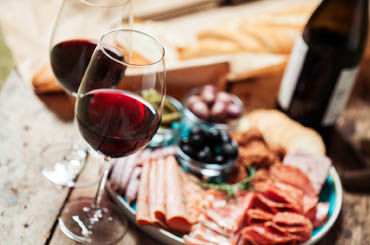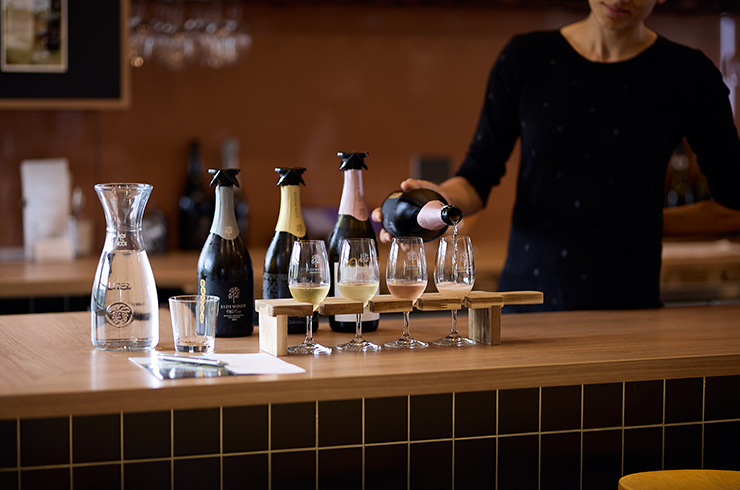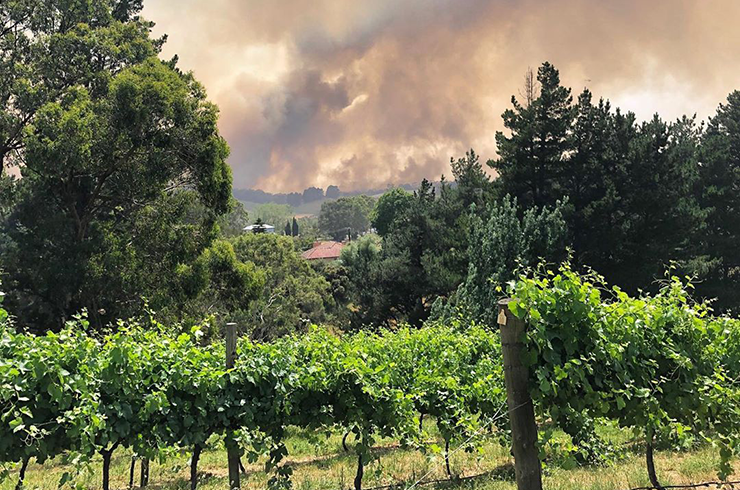Bold winemakers such as husband and wife team Brendan and Lauren Carter of Unico Zelo are leading the way. “We enjoy a culture of incredible creative freedom in the Adelaide Hills, and that allows us to do more challenging things,” Brendan says.
This begins with how Unico Zelo makes wines, based on a strong philosophy of sustainability. The Carters converted a former apple cold storage facility in Gumeracha into their winery; its efficient insulation meaning they could ferment wines without installing a chilling system, which they worry would result in an excessive carbon footprint and high costs.The Carters also choose less thirsty alternative grape varieties grown in appropriate areas. They have supported planting fiano and nero d’avola in Adelaide Hills and Clare Valley, resulting in a reduction of 7.2 megalitres water use in vineyards each year. The company’s sustainability spreadsheet is available for all to see online, tracking the progress of more than 40 active projects, from carbon-neutral shipping services to minimising winery waste – with another eight ideas on the drawing board, including attaining sustainable winegrowing certification this year.
It all gets explained to visitors at their cellar door bar, where there’s more than wine to enjoy. Their Applewood gins and liqueurs – many featuring native ingredients – are also explained through comparative tasting flights and cocktails. This immersive experience is specifically designed to promote their sustainability intentions. “We want to make wines and other drinks that taste fantastic and make clear sense in our hot, dry climate. We need them to reflect the soil from where they came,” Brendan says. “It’s different, and that means we have a chance to create something that is paradigm shifting.”
Educating the visitor
If sustainability is a fresh story being written in Australian wine production, the Carters say the Adelaide Hills is the perfect location to draft the script. As a relatively new wine production region – initial plantings of chardonnay were established by Brian Croser in 1979 – its strengths are only just being defined, as a surge of new labels pull sharp focus on essential varieties, flavours and stylistic approaches.
Within this framework, the Carters see an opportunity to issue a loud and deliberate statement of intent to the region’s growing legion of visitors. “Education is intrinsic,” Brendan says. “We see it as the crucial de-wanking of wine. It’s us taking the important step of being approachable and fun to the next generation, which is only just approaching wine for the first time. We think they deserve a more compelling, real story about why we drink what we drink, and what there is to love about it.”
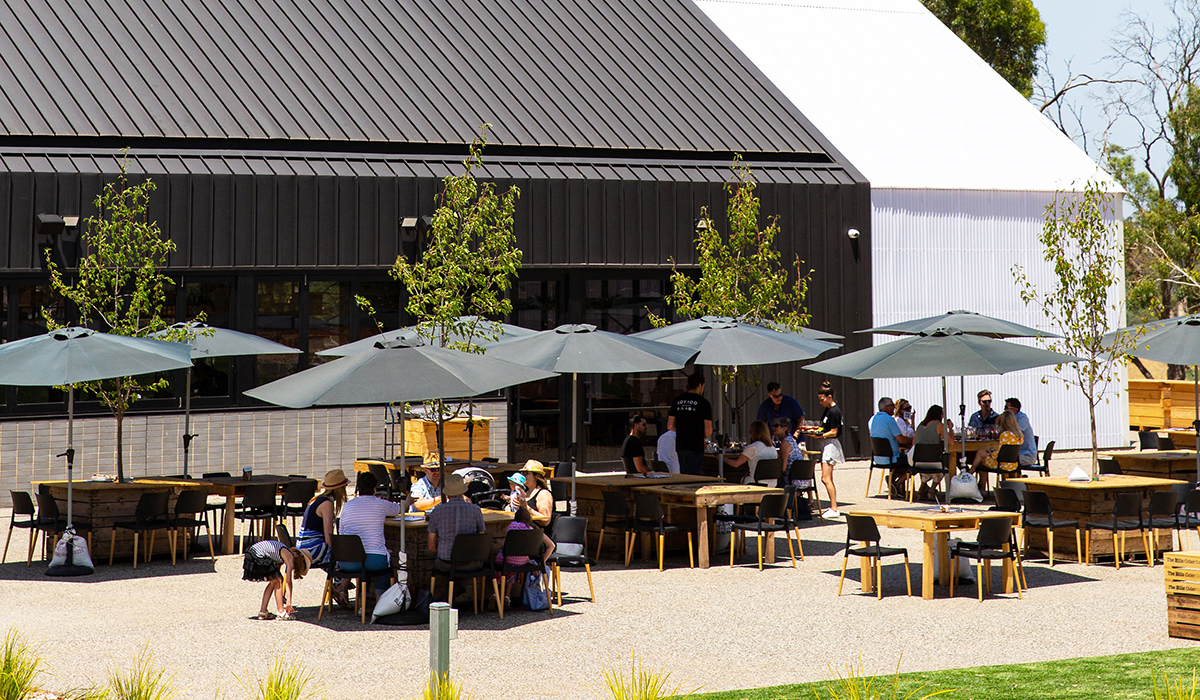
Al fresco at Lot 100, the popular venue that is home for a number of the region's producers.
A similar narrative, stretching across many drink styles, is presented at the huge Lot 100 production facility, tasting venue and farm at Nairne – the combined home of Mismatch brewery, Adelaide Hills Distillery, Hills Cider Co and Vinteloper Wines. All of these drinks are served in a vast indoor-outdoor tasting pavilion, in the company of delicious food by Shannon Fleming (ex-Orana, Adelaide’s leading Indigenous ingredient restaurant) and wood-oven expert Tom Bubner. By offering all things to all people, Lot 100 attracts big crowds, especially at masterclasses of gin blending in the production shed’s mezzanine bar. “We want our visitors to see, taste, smell and get their hands on everything we create here,” says co-owner Toby Klein. “The more they know, the more they understand our point of difference.”
Nearby, another shining light of the region’s new breed is taking visitors through focused tastings of extraordinary wines. Murdoch Hill shows the deliciously different wines of Michael Downer, especially his expressions of syrah and pinot – the Ridley combination of pinot noir, pinot meunier and pinot gris being a star attraction. To best explain the logic behind these blends, the Downers host tutored tastings. Book ahead to ensure a seat in the picturesque new Murdoch Hill tasting lounge amid the gum trees.
Terroir explained
Educational tastings are not the exclusive domain of new ventures. Shaw + Smith, which recently celebrated the 20th anniversary of its elegant winery and tasting room at Balhannah, has modified and improved its tutored tasting experience, and also introduced The Friday Table lunch and vineyard/winery tour. “It’s a reaction to expanding interest in specific details of our wine,” says David LeMire MW, global sales and marketing manager, and joint CEO. “We’re precise with every facet of our fruit-growing and winemaking process, and we’re prepared to share every aspect.”

One of the tasting flight options at Shaw + Smith.
The vineyard and winery tour concludes with a comprehensive tutored tasting and lunch in the Shaw + Smith Map Room, where pours of new and aged releases, and limited single-site wines are identified according to their location to explain specific characteristics. “It’s what we’ve always set out to do – to be the best that we can, and to be transparent about every step of the way that we make wine,” says Michael Hill Smith MW, co-owner and joint managing director with his cousin Martin Shaw. “All the information we share defines our terroir story in the Adelaide Hills, and that’s a crucial story for the whole world to know.”
Sparkling gainsA reimagining of the Adelaide Hills and its best wines has seen some elite chardonnay and pinot noir fruit channelled into exceptional sparkling wines. Growing confidence among small producers to embrace this move is reflected in the expanding class of sparkling wine entries at the Adelaide Hills Wine Show, representing the largest regional number of traditional method producers in mainland Australia.
This is led by established stalwarts Croser, produced by Petaluma, and Deviation Road, where Kate Laurie, who learned the craft in Champagne, has developed an outstanding suite of brut, blanc de blancs and rosé styles, as well as Bird in Hand’s two big statement wines – Nest Egg Joy Pinot Noir and Lalla Victoria Sparkling Pinot Noir.
Beyond this, many smaller producers are working with freelancer Michael Sykes to produce pristine sparkling wines at his Lodestone winery in Charleston, including Somerled’s Pinot Noir Méthode Traditionnelle, and Xavier Bizot and wife Lucy Croser’s outstanding DAOSA Natural Reserve and Blancs de Blancs.
Visitors can get acquainted with micro sparkling producers through various beautiful cellar doors, from Paul and Penny Henschke’s Greenhill Wines that overlooks steep rows of vines amid undulating hills, to Pike and Joyce’s sweeping tasting patio and dining space atop the Lenswood range, and also Mount Lofty Ranges Vineyard, which has a gorgeous dining room overlooking steep vineyards. Owners Sharon Pearson and Garry Sweeney have maximised the value of this top-tier vineyard since acquiring it in 2009, placing its exemplary suite of cool-climate wines alongside superb food by ex-Ritz Hotel London chef Adam Bowen.
Naturally evolvingThe merry pranksters at the forefront of the Basket Range natural wine movement, which has brought so much attention to the region, have moved into a new phase of development. There have been noticeable shifts in the style and presentation of their wines, and visitors can now experience them in situ.
James Eskine’s Jauma winery has found a permanent home at Lenswood, on a lofty old cherry orchard where he has started planting new vines. Visitors can book in for private wine tastings – highlighting how restrained and nuanced his beguiling, light bodied wines have become – and pick their own cherries in summer.
At The Summertown Aristologist, owners Anton van Klopper of Lucy Margaux Wines, and Jasper and Sophie Button from Commune of Buttons provide a sweeping snapshot of the current state of natural wines, framed within the eclectic restaurant/bar and sales room. The cellar is packed with their own wines, plus hundreds of other no/low sulphur wines from neighbours and also around the world, best enjoyed with dishes featuring produce sourced from their own farms.
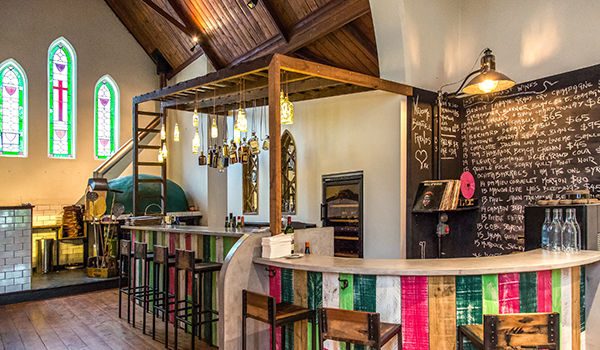
Inside Lost in a Forest, which serves up excellent pizza and wines.
The region’s other great vinous clubhouse is Lost in a Forest, a charismatic wine lounge in the former St Stephens Anglican Church in Uraidla, where a giant domed pizza oven commands a space where the altar once stood. Intriguing organic pizza toppings – banh mi, salami and honey – sit easily in the company of exciting Ochota Barrels wines, providing an idyllic and relaxed tasting environment.
Top image: Shaw + SmithThis article first appeared in Halliday magazine. Become a member to receive six editions a year, gain access to more than 150,000 tasting notes and other exclusive wine content.
